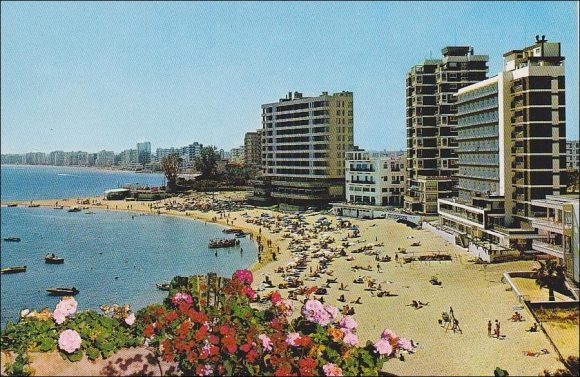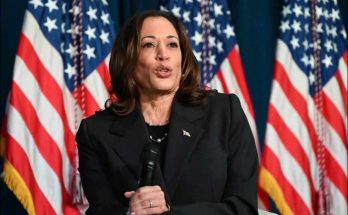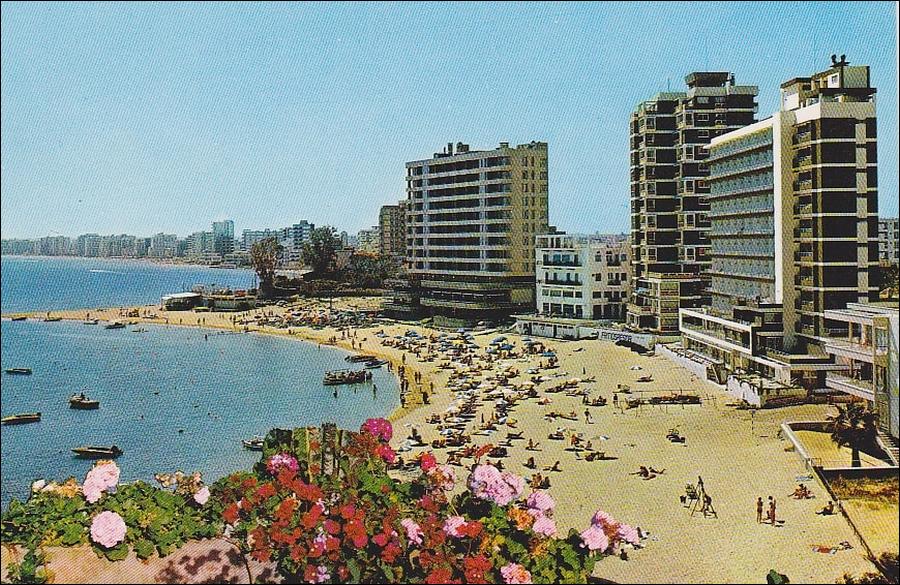The Cyprus question has been a near-constant fixture in international relations for almost 60 years. This week it popped up again because of the question of the reopening of the ghost town of Varosha, a suburb of the eastern city of Famagusta.
Kudret Özersay, the foreign minister of the Turkish Republic of the Northern Cyprus (KKTC), announced his government was planning to revitalise the district. It was vacated when the Turkish army carried out a military operation to stop the annexation of the island to Greece in 1974. Ever since, the area has been a military zone and only Turkish and UN military personnel have been allowed to enter.
Before 1974, the area was a very popular destination for tourists, not only from elsewhere in Cyprus, but all over the world. It had a population of around 40,000 and 45 hotels, 60 apartment-hotels, 99 places of entertainment, 21 banks and 380 unfinished buildings. The value of land alone, without the existing hotels and buildings, is estimated by experts to be around $100 billion.
Many Turkish Cypriot politicians have from time to time raised the idea of trying to economically revive the district. The latest initiative aims, first to terminate the status of the neighbourhood as a military area and then set up an expert group to examine the ownership status, on the basis of the Ottoman land registry archives.
Most of the area is believed to have belonged to three major waqfs (pious foundations): The beach area belonged to the Abdullah Pasha waqf and the inner part to the Lala Mustafa Pasha waqf. Only a small part belonged to the Bilal Agha waqf.
There are claims that, under the British administration, the area was purchased from various waqfs by the British government for 1.5 million pounds. An amount of 1.5 million pounds was in fact paid by the British government to the Turkish Cypriot side, but it was for an entirely different purpose. The British colonial administration of Cyprus kept the rents of real estate belonging to these waqfs very low, so the land could not be maintained properly. The British colonial administration admitted its mistake and paid 1.5 million pounds to the waqfs for the restoration and maintenance of the real estate.
This background is explained in the Appendix U of the 1960 London and Zurich Agreements. The appendix, which contains a letter sent by the outgoing British Governor of Cyprus to the then-deputy president of the Republic of Cyprus, reads as follows: “I have the honour to inform you that the government of the United Kingdom of Great Britain and Northern Ireland have decided to make available the sum of £1,500,000 by way of grant to the Turkish community in Cyprus to be used for education, the development of Vaqf property and cultural and other like purposes.”
The present Turkish Cypriot authorities say that they will be prepared to negotiate on a case-by-case basis with the developers who may have built hotels or other buildings on the area that belonged to the waqfs. If the two sides agree, the developer will reimburse the value of the land to the waqf. If not, the land will be returned to the waqf.
The 1984 UN Security Council Resolution Number 550 “considers any attempts to settle any part of Varosha by people other than its inhabitants as inadmissible and calls for the transfer of that area to the administration of the United Nations”. Turkish Cypriots may not agree to transfer the area to the UN, but may agree to let either Turkish or Greek businesses run the hotels or other buildings under the jurisdiction of the KKTC. The Turkish Cypriot government is not prepared to negotiate on this subject with the Greek Cypriot authorities, as they believe it has nothing to do with the issue.
As part of a plan to solve the Cyprus question, an attempt was made by the former UN Secretary General Kofi Annan to allow the original inhabitants to return to Varosha, but the plan was rejected by the Greek Cypriots in a 2004 referendum. If a deal can be worked out, a huge potential that has been lying idle for more than 45 years will be revived.
Views: 771




